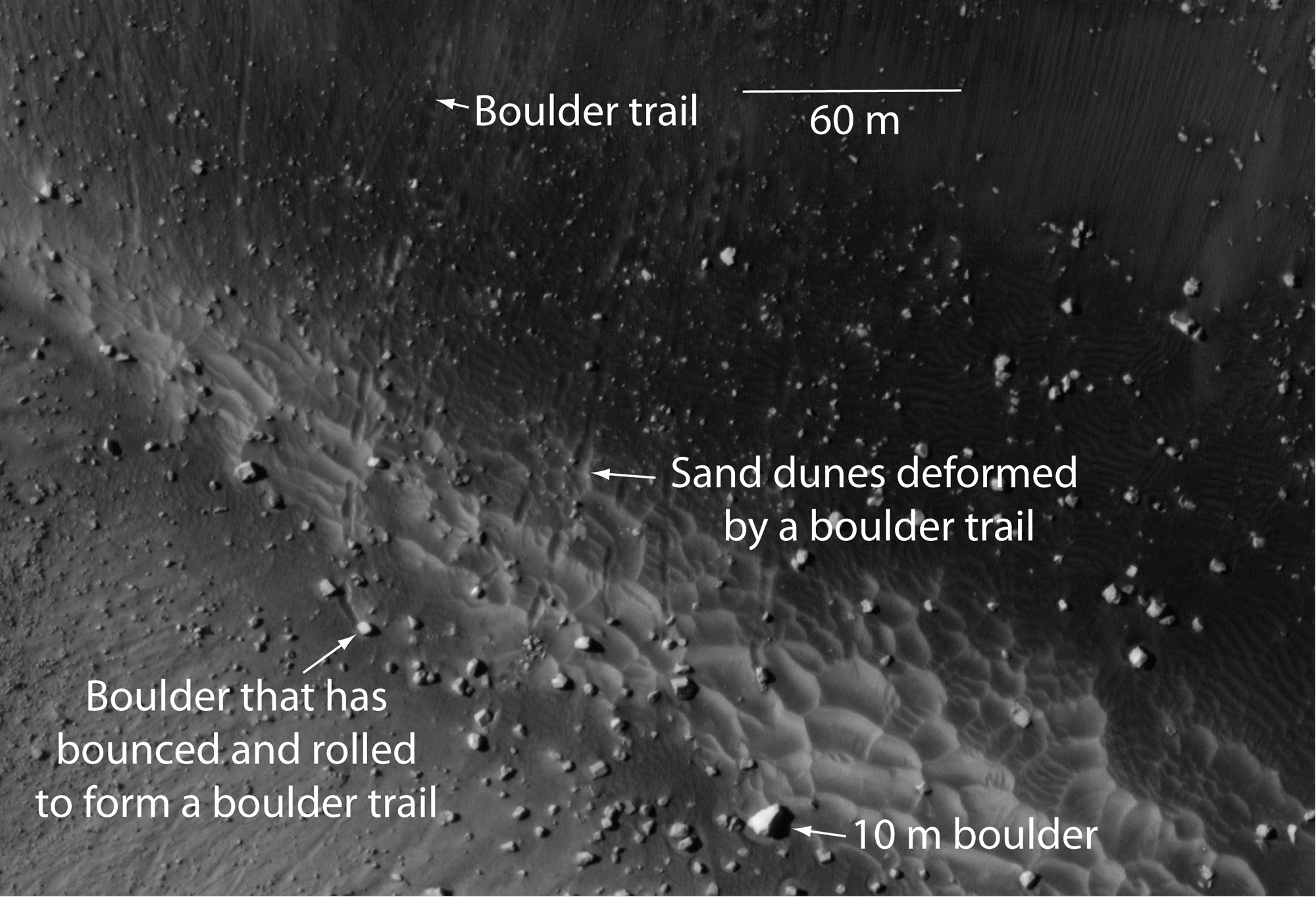'Marsquake' May Have Shaken Up Red Planet

The surface of Mars appears to have been shaken by quakes relatively recently, hinting at the existence of active volcanoes and perhaps reservoirs of liquid water on the Red Planet, a new study suggests.
Using photographs snapped by NASA's Mars Reconnaissance Orbiter, researchers analyzed the tracks made by boulders that fell from a Martian cliff. The number and size of these boulders — which ranged from 6.5 to 65 feet (2 to 20 meters) in diameter — decreased over a radius of 62 miles (100 kilometers) from a point along Mars' Cerberus Fossae faults.
"This is consistent with the hypothesis that boulders had been mobilized by ground-shaking, and that the severity of the ground-shaking decreased away from the epicenters of marsquakes," the study's lead author Gerald Roberts, of the University of London, said in a statement.
The dirt patterns created by the toppled Martian rocks weren't consistent with how boulders would scatter if they were deposited by melting ice, researchers said. Rather, they resembled the boulder falls seen after a 2009 earthquake near L'Aquila, in central Italy.
Based on the area covered by the displaced rocks, Roberts and his team estimate the quake's magnitude at 7 — about the same as the 2010 Haitian temblor that killed perhaps 300,000 people. The marsquake may have been powered by movements of magma related to the nearby Elysium Mons volcano, the researchers added.
Because Martian winds have not yet erased the boulder tracks, the researchers further concluded that the quake occurred in the relatively recent past, within the last few percent of the Red Planet's 4.5-billion-year history.
There's even a possibility that quakes are shaking the Martian surface today, they added. If that's the case, it would be good news for scientists interested in searching for life on the Red Planet. If active volcanos still exist on Mars, their heat could melt pockets of the planet's subterranean ice, perhaps forming reservoirs of liquid water hospitable to life as we know it.
Get the Space.com Newsletter
Breaking space news, the latest updates on rocket launches, skywatching events and more!
The study will be published in the March 1 edition of the Journal of Geophysical Research-Planets.
Follow SPACE.com for the latest in space science and exploration news on Twitter @Spacedotcom and on Facebook.
Join our Space Forums to keep talking space on the latest missions, night sky and more! And if you have a news tip, correction or comment, let us know at: community@space.com.

Space.com is the premier source of space exploration, innovation and astronomy news, chronicling (and celebrating) humanity's ongoing expansion across the final frontier. Originally founded in 1999, Space.com is, and always has been, the passion of writers and editors who are space fans and also trained journalists. Our current news team consists of Editor-in-Chief Tariq Malik; Editor Hanneke Weitering, Senior Space Writer Mike Wall; Senior Writer Meghan Bartels; Senior Writer Chelsea Gohd, Senior Writer Tereza Pultarova and Staff Writer Alexander Cox, focusing on e-commerce. Senior Producer Steve Spaleta oversees our space videos, with Diana Whitcroft as our Social Media Editor.









